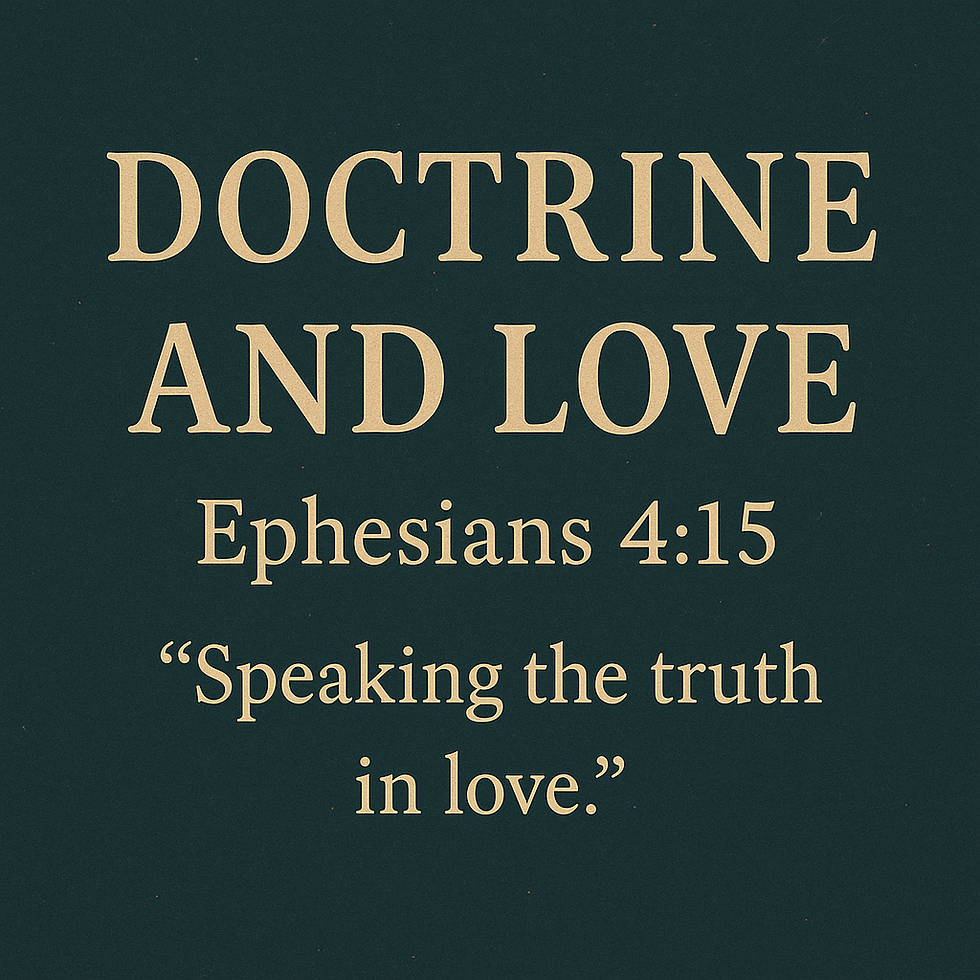Introduction: Why Doctrine Matters for the Church
- Corby Davis
- Sep 3, 2025
- 2 min read
Updated: Sep 4, 2025
Doctrine has never been a luxury for the church. It is the very air we breathe. Yet in our time, many treat doctrine as optional or even harmful. “We don’t need doctrine,” they say, “we just need Jesus.” But Jesus Himself declared, “Sanctify them by the truth; Your word is truth” (John 17:17). Christ cannot be separated from His Word, and His Word cannot be separated from doctrine.
The apostle Paul repeatedly reminds the church to hold fast to sound teaching. He urged Timothy, “Retain the standard of sound words which you have heard from me” (2 Tim. 1:13). Again, he warns that “the time will come when they will not endure sound doctrine” (2 Tim. 4:3). The health of the church rises or falls on this point. When doctrine is despised, truth is lost. When doctrine is cherished, Christ is exalted and His people are protected.
The Reformers understood this. John Calvin wrote, “Doctrine is not an affair of the tongue, but of the life” (Institutes, 3.6.4). In other words, doctrine is not simply what we say but what we live. Louis Berkhof later echoed the same conviction: “The Christian religion is a life, but it is a life that is rooted in truth. And the systematic statement of that truth is doctrine” (Systematic Theology, p. 21). Truth and life cannot be separated without destroying both.
History proves this. When the church of the Middle Ages abandoned the biblical gospel, replacing it with superstition and tradition, spiritual darkness covered Europe. But when God raised up Reformers like Luther, Calvin, and Knox, their cry was not for a new experience but for a return to doctrine; the authority of Scripture, the sufficiency of Christ, justification by faith alone. The Reformation was a doctrinal revival, and through it the church was brought back to life.
On the other hand, whenever the church has compromised doctrine, decline has quickly followed. J. I. Packer warned, “A church without theology is a church without Christ” (Knowing God, p. 38). Without sound teaching, the church loses her witness and drifts with the tides of culture.
This 30-day study aims to help us rediscover the truth that doctrine is not cold or lifeless. It is the very breath of God, given to equip us for every good work (2 Tim. 3:16-17). Each day we will open Scripture, listen to the wisdom of faithful teachers, and apply God’s truth to our lives. Doctrine leads to doxology; teaching that ends in worship.
Beloved, if we love Christ, we must love His truth. If we desire strong churches, we must cling to sound doctrine. Over the next thirty days, let us walk together through God’s Word, confident that His truth is not a burden but a blessing, not a distraction but the very life of His church.



Comments